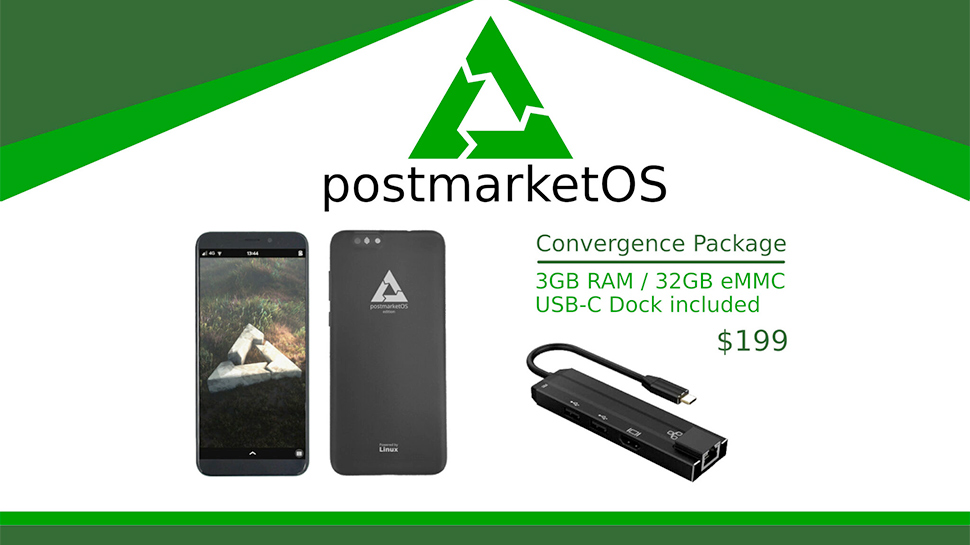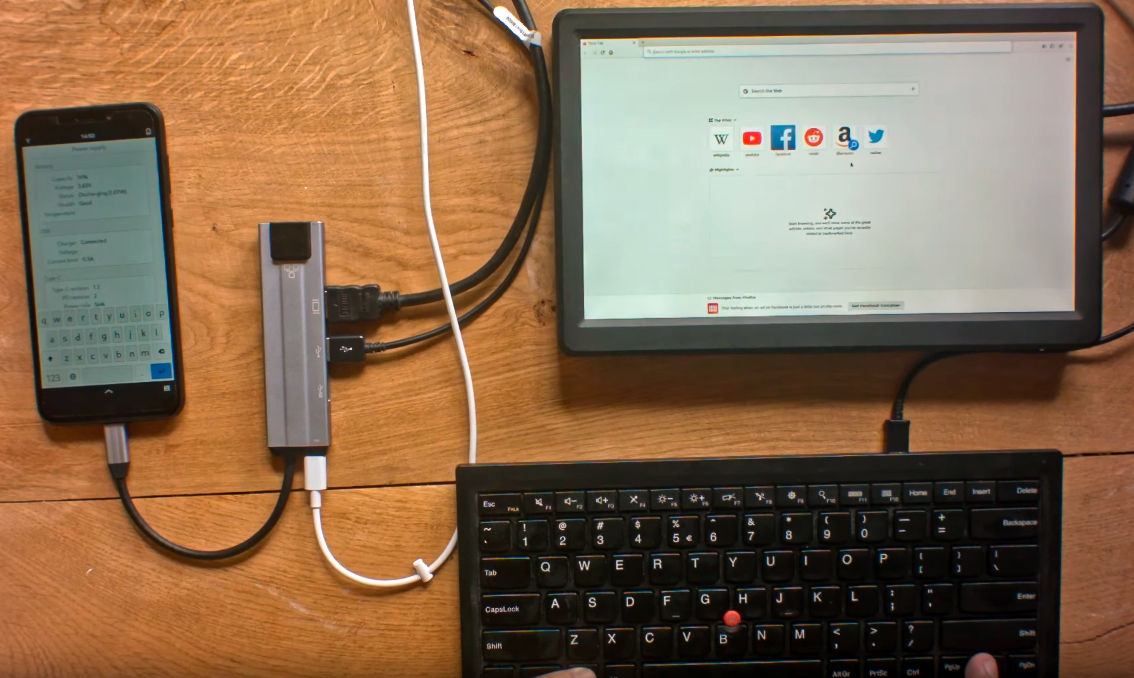This cheap Linux smartphone can replace your PC
A Linux desktop you can keep in your pocket

Pine64, a maker of Linux smartphones, has introduced its new PinePhone Convergence Package handset that can be used as a PC when plugged to an external display and a keyboard. The device costs just $199 and is aimed primarily at Linux enthusiasts.
The PinePhone Linux smartphone is based on the Alpine Linux-based PostmarketOS that can be used both in smartphone and desktop modes.
The smartphone mode works just like one comes to expect from a Linux-based handset, whereas the desktop mode currently acts like the second screen to the device, meaning there could be more features to come soon.
- Best iPhone: which Apple phone is the top choice for you?
- Best phone in the US: the top 15 smartphones we've tested
- Best laptop: our pick of the 15 best laptops you can buy this year
Entry-level smartphone as a desktop?
The internals of the PinePhone Convergence Package are pretty modest by today’s standards. The smartphone comes with a 5.95-inch display with a 1440x720 resolution and is powered by the Allwinner A64 SoC with four energy-efficient Arm Cortex-A53 cores and Mali-400MP2 GPU that is accompanied by 3 GB of RAM and 32 GB of eMMC storage. The phone has a 5 MP main camera and a 2 MP selfie camera.
The main component that transforms the PinePhone into a PC-like device is its USB-C docking bar that features an HDMI display output, two USB Type-A connectors, and a 10/100Mb Ethernet port.

The idea of using a smartphone with an external display and keyboard to run certain applications has not gained much traction neither with HP’s Elite x3 Windows Phone 10 handset nor with Samsung’s smartphones with its DeX software.
Perhaps, since Linux community is generally more inclined to experiment with their gadgets (and their time), Pine64’s PinePhone Convergence has a better chance to be actually used as a desktop by its owners. Meanwhile, given moderate overall capabilities of the smartphone itself, it is hard to imagine that it will be generally successful as a product.
Are you a pro? Subscribe to our newsletter
Sign up to the TechRadar Pro newsletter to get all the top news, opinion, features and guidance your business needs to succeed!
Via ZDNet
Anton Shilov is the News Editor at AnandTech, Inc. For more than four years, he has been writing for magazines and websites such as AnandTech, TechRadar, Tom's Guide, Kit Guru, EE Times, Tech & Learning, EE Times Asia, Design & Reuse.